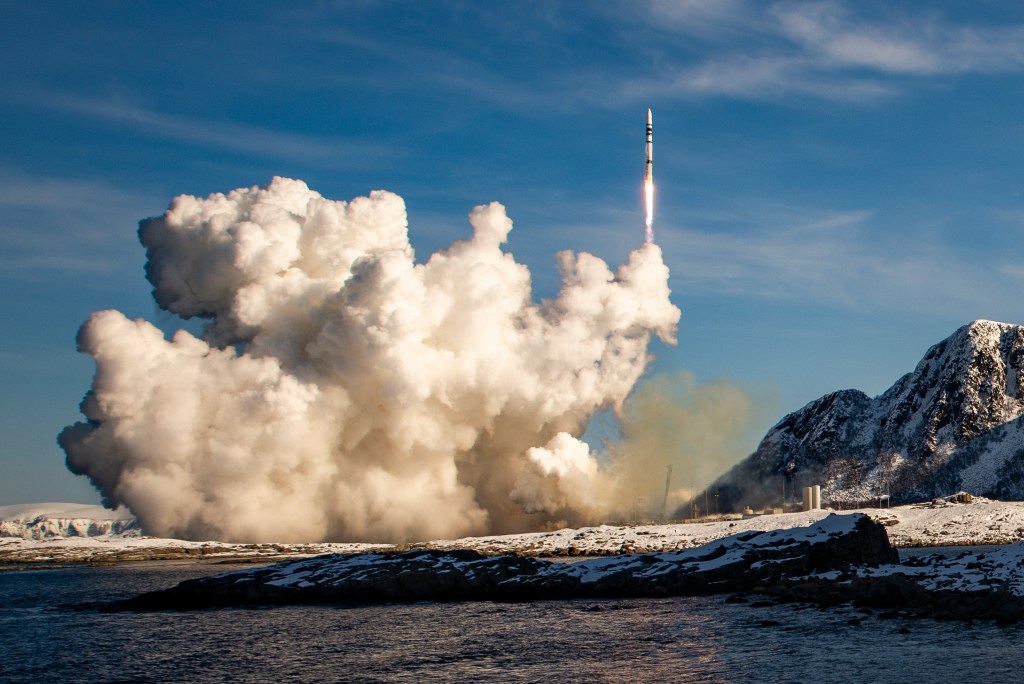South Korean team prepares BioCabinet payload for space biology research on Nuri rocket mission
Tuesday, 02 December 2025 10:26 Chan Hum Park and his research team from Hallym University Chuncheon Sacred Heart Hospital are sending their BioCabinet payload into orbit aboard the fourth Nuri rocket flight on November 27, launching alongside the Next-Generation Medium Satellite-3.
BioCabinet is a research platform featuring a bio 3D printer and an incubator for stem cell differentiation. It will fabricate artificial he
Chan Hum Park and his research team from Hallym University Chuncheon Sacred Heart Hospital are sending their BioCabinet payload into orbit aboard the fourth Nuri rocket flight on November 27, launching alongside the Next-Generation Medium Satellite-3.
BioCabinet is a research platform featuring a bio 3D printer and an incubator for stem cell differentiation. It will fabricate artificial he Spire Global faces NYSE noncompliance as contract momentum collides with reporting delay
Tuesday, 02 December 2025 10:26 On November 25 2025 Spire Global Inc received a notice from the New York Stock Exchange stating that the company is not in compliance with the exchange's continued listing standards because it failed to file its Quarterly Report on Form 10-Q for the quarter ended September 30 2025 on time with the U.S. Securities and Exchange Commission. The NYSE cited Section 802.01E of its Listed Company Manua
On November 25 2025 Spire Global Inc received a notice from the New York Stock Exchange stating that the company is not in compliance with the exchange's continued listing standards because it failed to file its Quarterly Report on Form 10-Q for the quarter ended September 30 2025 on time with the U.S. Securities and Exchange Commission. The NYSE cited Section 802.01E of its Listed Company Manua UAH CanSat and rover teams notch winning performances in 2025 national and international competitions
Tuesday, 02 December 2025 10:26 UAH students prepare CanSat payload for launch during 2025 International CanSat competition held in Monterey and Staunton, Va.
Three CanSat teams at The University of Alabama in Huntsville (UAH), a part of The University of Alabama System, placed first, second and sixth nationally in the 2025 International CanSat competition held in Monterey and Staunton, Va. UAH teams BlueStreak, Cosmos a
UAH students prepare CanSat payload for launch during 2025 International CanSat competition held in Monterey and Staunton, Va.
Three CanSat teams at The University of Alabama in Huntsville (UAH), a part of The University of Alabama System, placed first, second and sixth nationally in the 2025 International CanSat competition held in Monterey and Staunton, Va. UAH teams BlueStreak, Cosmos a Isar Aerospace wins launch contract for European tech demo satellite
Tuesday, 02 December 2025 10:07
German launch startup Isar Aerospace won a contract to launch a European technology demonstration satellite on its Spectrum rocket in late 2026.
Vega C launches South Korean satellite
Tuesday, 02 December 2025 09:37
A Vega C rocket launched a South Korean satellite Dec.
Sun-watcher SOHO celebrates thirty years
Tuesday, 02 December 2025 09:01
On 2 December 1995 the ESA/NASA Solar and Heliospheric Observatory (SOHO) blasted into space – on what was supposed to be a two-year mission.
From its outpost 1.5 million km away from Earth in the direction of the Sun, SOHO enjoys uninterrupted views of our star. It has provided a nearly continuous record of our Sun’s activity for close to three 11-year-long solar cycles.
What happens to creams and drugs in space? Behavior of soft matter in weightlessness studied
Tuesday, 02 December 2025 08:28Verifying that you are not a bot
Webb observes a dance of dwarf galaxies
Tuesday, 02 December 2025 08:00 Image:
Webb observes a dance of dwarf galaxies
Image:
Webb observes a dance of dwarf galaxies Proteus Space Launches First AI Designed Spacecraft, Sets Multiple Records
Tuesday, 02 December 2025 07:00
Dynamic duo of bacteria could change Mars dust into versatile building material for first human colonists
Tuesday, 02 December 2025 04:00Verifying that you are not a bot
Video: HydroGNSS launch highlights
Tuesday, 02 December 2025 00:40Verifying that you are not a bot
Reditus Space joins reusable satellite wave with $7 million seed round
Monday, 01 December 2025 22:33
Reditus Space announced $7.1 million in seed funding to fly its first reusable spacecraft next summer, joining a wave of startups emerging from stealth in microgravity research and in-space manufacturing.
Spire to build eight satellites for Deloitte’s on-orbit cybersecurity program
Monday, 01 December 2025 22:31
European rocket puts S.Korean satellite in orbit
Monday, 01 December 2025 19:50Verifying that you are not a bot
What time is it on Mars? Physicists have the answer.
Monday, 01 December 2025 17:40Verifying that you are not a bot
